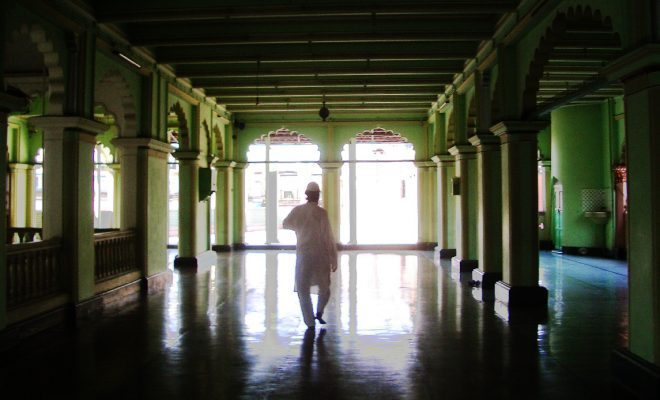 Image Courtesy of [Lili Olivares via Flickr]
Image Courtesy of [Lili Olivares via Flickr]
Elections
After Orlando Shooting, Trump Fans the Flames of Islamophobia
After last week’s tragedy in Orlando, Donald Trump doubled down on a major theme that has reverberated throughout his campaign: in Trump’s America, Muslims are not welcome.
In an interview with CBS’s Face the Nation on Sunday, Trump referred to the profiling of Muslims as “common sense,” and claimed that American Muslims don’t do enough to “report” suspicious behavior in their communities. He also told Sean Hannity last week that Muslim assimilation in the U.S. has been close to “nonexistent.”
It’s not unusual for Trump to make controversial and misleading comments about Islam–since his campaign launched last year, such commentary has been a staple of his rhetoric. Last year, he made a claim that he saw Muslims in Jersey City “dancing in the streets” after 9/11, an accusation that has never been proven true. Then, after the San Bernardino attacks last December, Trump released a plan to ban Muslim immigration to the U.S. indefinitely, “until we are able to determine and understand this problem and the threat that it poses.”
Additionally, he has called for practices such as creating Muslim registries and putting surveillance on mosques, which would place Muslims in another category and treat them differently from other citizens.
His Islamophobia is not new, yet he has been able to use the Orlando attack to advocate for his harmful (and probably unconstitutional) policies toward the Muslim community. His latest round of comments continued to reflect the belief that Islam is somehow incompatible with American values, and that Muslims are fundamentally unable to assimilate into the American system while holding on to their belief systems.
At a rally in Atlanta on Friday, Trump told the crowd that the Orlando shooter, Omar Mateen, was “born here, but his parents weren’t and ideas weren’t…his ideas were born from someplace else.” The idea that an American citizen by birth could be used as an example of why we need to curb immigration from Muslim countries is another means to alienate Muslims from the general populace. Trump’s grandparents and his own wife weren’t born here either–yet no one questions their devotion to this country.
Mateen and his ideas were not representative of American Muslims, yet Trump’s comments put the blame on his community for not reporting him (despite the fact that somebody actually did–and Mateen was still let off by the FBI).
Hate crimes towards Muslims reached a high last year, signaling that the environment is ripe for Trump’s rhetoric to permeate; if his ideas continue to spread, it will further create an environment that is hostile and harmful towards Islam in America.
Being “American” and being “Muslim” are not mutually exclusive, but Trump is suggesting that Muslims are lesser citizens than the rest of the American populace. Even if he doesn’t emerge victorious in November, it is likely that many of his ideas will continue to live on in the hearts and minds of his followers. If not viciously opposed, Trump’s rhetoric could continue to have a detrimental effect on the American Muslim community.








Comments